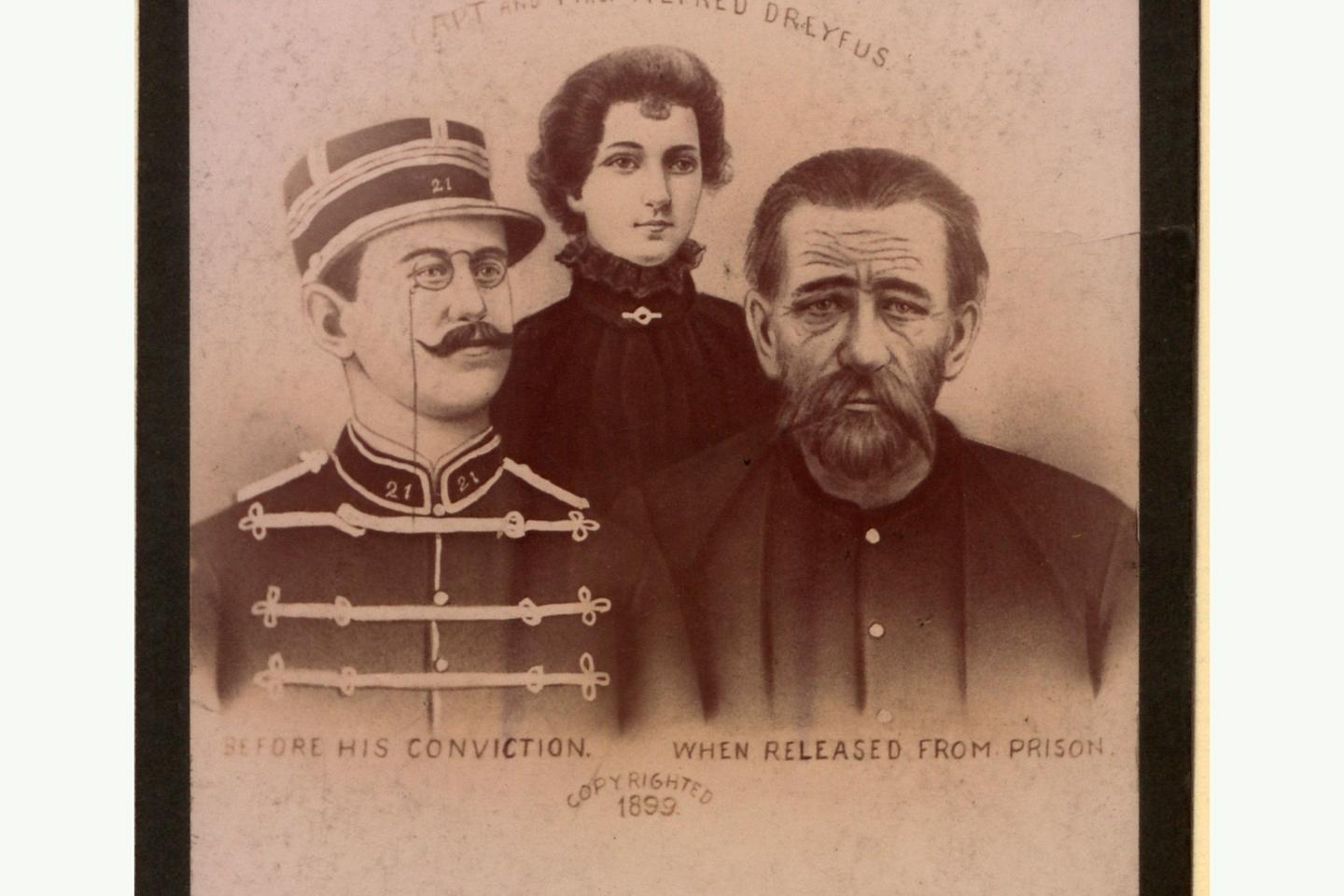


From 1898 onward, the Dreyfus Affair, which began in 1894, became a major political and judicial scandal. Alfred Dreyfus, a French officer, a Jew and Alsatian who chose France in 1871, was wrongly accused of treason on behalf of Germany. Convicted on the basis of false evidence, he was stripped of his rank and sent to a penal colony. He came to embody the victim of both the state's interests and antisemitism, at a time when the army, the press, the political sphere and society at large were deeply tainted by hatred of Jews.
During his years in the penal colony (1895-1899), a massive intellectual and political campaign formed to bring the truth to light, led by his brother Mathieu, the writers Bernard Lazare, Emile Zola and Charles Péguy, and Socialist leader and journalist Jean Jaurès. Dreyfus (1859-1935) became an emblematic figure.
For a long time, he was seen as an "uninspiring officer," a passive symbol of innocence, as journalist Philippe Collin recalled in his podcast on the France Inter radio station, Alfred Dreyfus, le combat de la République ("Alfred Dreyfus: The Fight for the Republic"). His exoneration in 1906, after his pardon in 1899, restored his honor, but not without an injustice: The government failed to acknowledge his years in the penal colony in his career progression. He resigned but continued to publicly defend the truth of his innocence. He reenlisted from 1914 to 1918. He died in 1935.
Faithful to republican principles
For a long time, collective memory glorified the Dreyfusards, his supporters, but left Dreyfus himself relegated to the status of mere victim of state conspiracy and antisemitic plotting – especially as, after the traumas of the wars and the Holocaust, heroism gave way to the sacralization of victims. "The victim has become the new figure of the hero," wrote François Azouvi in Du héros à la victime. La métamorphose contemporaine du sacré ("From Hero to Victim: The Contemporary Transformation of the Sacred").
You have 71.15% of this article left to read. The rest is for subscribers only.
